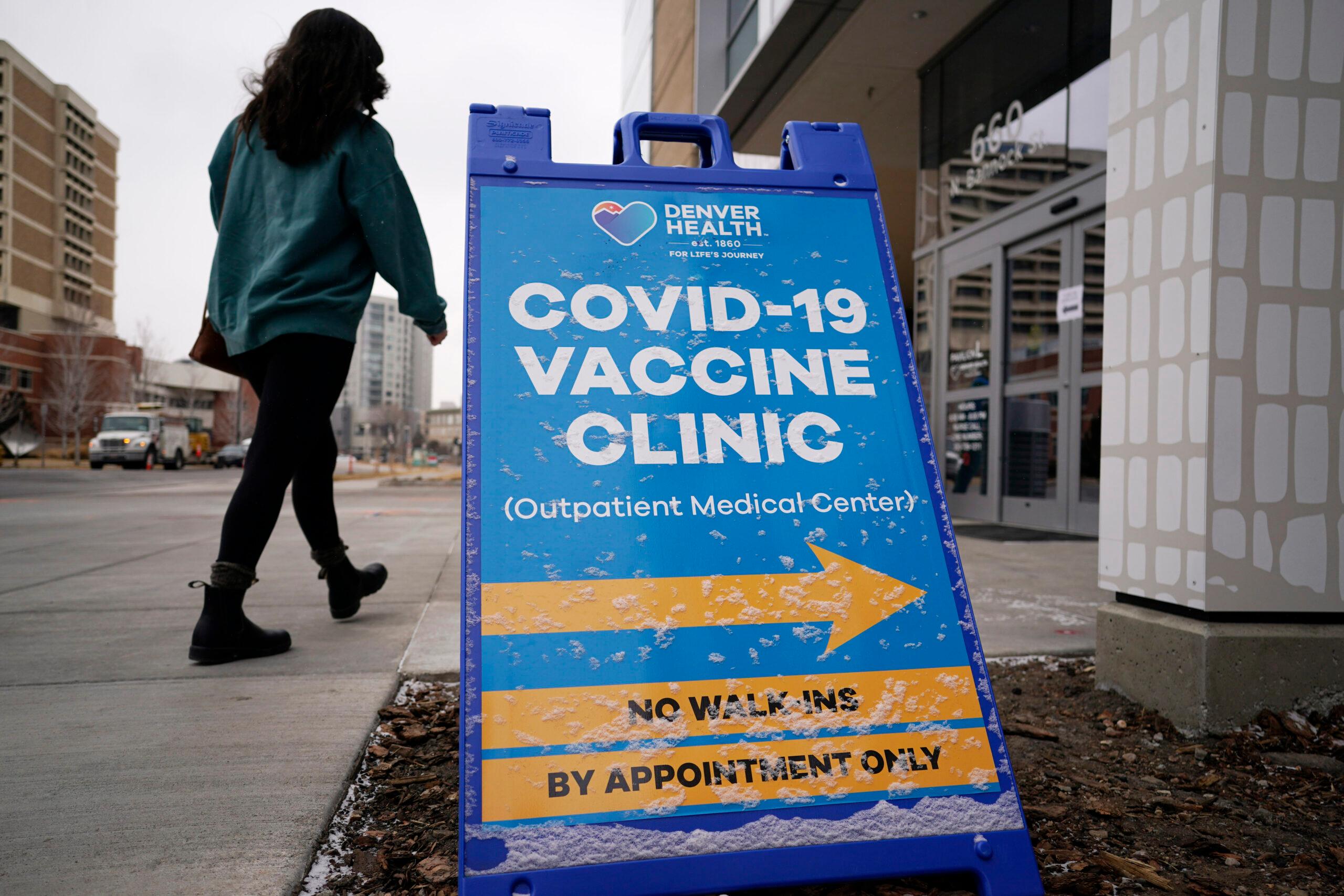
The latest adjustment to coronavirus immunization priorities means that Coloradans age 60 to 64, people with two or more chronic health conditions and grocery store and agricultural processing workers will be eligible for vaccinations on March 5.
“We're tiering it to make sure that people get it within a few weeks of when you're eligible,” Gov. Jared Polis said during his most recent news conference. “It doesn't do any good to say, ‘you can get it’ and then no one can get it for two months or something like that.”
He added that this is the last complicated tiering.
Nearly a million people are in the next phase. Grocery store workers and those employed by the JBS plant in Greeley, which suffered one of the deadliest outbreaks during the pandemic, will likely be vaccinated at their job sites. People age 60 and older and those with two or more conditions can make appointments at hospitals, clinics and pharmacies.
The change in the schedule means that some people, including frontline restaurant, postal service and public transit workers will wait longer than originally planned. Polis added them to Phase 1.B4, which is scheduled to start on March 21 and has about 2.5 million people in it.
That next incoming phase includes:
- People 50 and older
- Student-facing higher education faculty and staff
- Frontline essential workers in food/restaurant services, manufacturing, U.S. Postal Service, public transit and specialized transportation, public health and human services
- Faith leaders
- Frontline essential direct care providers for people experiencing homelessness
- Frontline essential journalists
- Continuity of local government
- Continuation of operations for state government
- Adults who received a placebo during a COVID-19 vaccine clinical trial
- People 16-49 with one high-risk health condition
Higher education staff repeatedly requested doses and were finally added to the priority after being left off the list for months.
“Since the beginning of this pandemic, we've really approached this process in a way that tries to save the most lives and is equitable and ends the pandemic and public health crisis as soon as possible,” Polis said.
The planned third phase has been eliminated and the general public is now in the second and final phase, which is expected to begin as soon as late April or early May. However, the state may divide the general public by age depending on vaccine availability.
Those seeking a vaccine will not be asked to verify their age or eligibility, but they will be asked to sign a form stating they are eligible.
The initial priority groups are all nearing the goals set for them. By the end of February, 70 percent of 70 and up will be vaccinated with at least their first dose, and 90 percent of frontline health care workers are fully vaccinated. Plus, the majority of skilled-nursing facilities and other senior care residents are vaccinated and social activities in those hard-hit places are expected to resume shortly.
As of Feb. 26, there were 1,521 new cases of COVID-19, a significant increase over recent days. New variants of the virus also pose a threat and could mean a new spike as Colorado's seen a persistent growth in the number of viral variant cases detected. Polis urged people to continue wearing masks and avoid close interaction with people outside their household. While the statewide mask mandate is scheduled to expire on March 6, the governor declined to say if it would be extended.
Editor's Note: This story was corrected Mar. 1 to reflect that agricultural processing workers, not essential manufacturing workers, become eligible for vaccine on Mar. 5.









